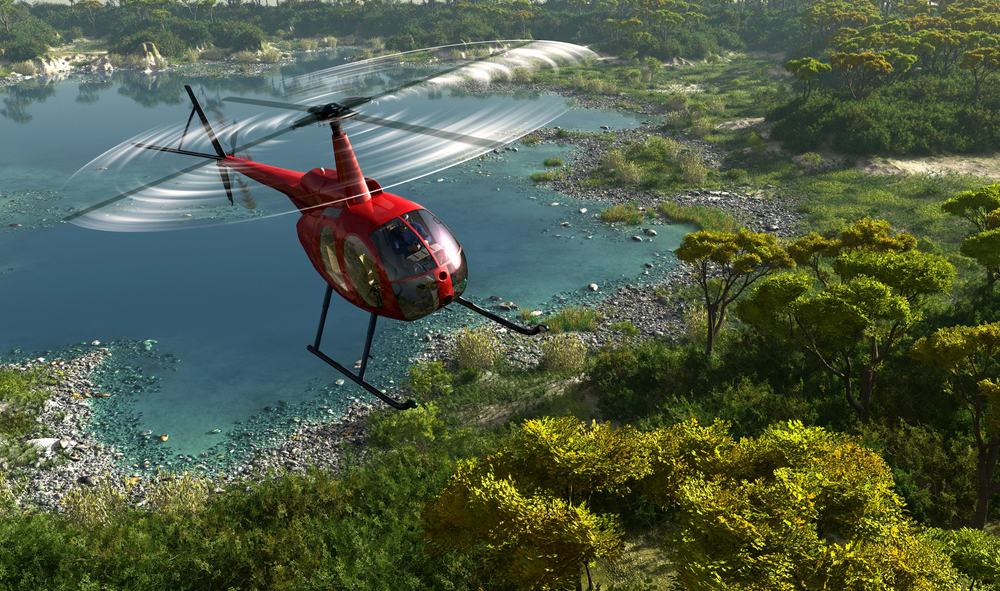 I’m always searching for new and interesting ways to describe coaching skills to the coaches I’m mentoring toward their ICF credential.
I’m always searching for new and interesting ways to describe coaching skills to the coaches I’m mentoring toward their ICF credential.
This is one metaphor I’ve used for a while, so thought I’d share it here too. It involves a helicopter and the different views it offers us depending on our coaching skills stage of development; including from inside the cockpit as pilot, or co-pilot. To viewing the terrain above, around and below. As well as from the view of being the helicopter.
As coaches, we hold the unique and honored position of being in a ‘human being to human being’ conversation. We have the privilege of being a confidante to our coaching client, listening to their hopes and dreams, listening for the gap from where they are now to where they’d ideally like to be.
As we progress in confidence with our coaching skills, we are able to expand our viewpoints of the client. We can ask questions, or make observations, from these different perspectives.
Using the perspective of a helicopter, here are some distinctions from how a beginner, competent, and masterful coach might view their client, and themselves.
Beginner, or ACC skill level coach
When I train, or mentor beginning level coaches, their perspective could be metaphorically described as this:
I’m the pilot of this helicopter (coaching session). How do I fly this thing? What are all these controls for? Where is the manual? What are the basic maneuvers? What are the steps to get this thing off the ground? What would my instructor (coach, mentor coach, coach trainer) say to do? What if the client finds out I’m a new pilot; will they trust me? There’s so many things to know. Where’s that manual that gave all the flying techniques? If I just follow the manual, I’ll be fine. I just need to show the client I’m in charge and prove that I know what I’m doing.
Competent, or PCC skill level coach
I’m the pilot of this helicopter (coaching session). Yet am I? Maybe my client also knows how to fly this thing? What if I ask them? What do they know? What are their capabilities? How high do they like to fly? Or perhaps hug the coastline? Maybe I can trust them to fly this instead of me! If I need to give some direction (on how the coaching session process works), then I can temporarily fly this thing. Maybe it’s okay for me to be the passenger sitting next to the pilot (coaching client).
Mastery, or MCC skill level coach
What a magnificent helicopter! I’d love to fly this thing. Yet even more joyful is when I get to ride alongside the pilot (my coaching client) in this amazing machine! Or what if I consider the view from being the helicopter? What does the pilot see that’s different than I see? How do they approach flying that might be different than I do? What can I learn from them? What do they need from me in order to fly this thing to their best ability? What emotions do they feel as they fly? What is the terrain below they are paying attention to most? Or maybe in front of them? What could cause them to feel overwhelmed? How do they handle unexpected situations?
Coaching Presence
I hope you get a picture of the difference between beginner, competent and masterful coaching skills. You might have more distinctions you can think of.
Mostly though, it’s Coaching Presence; how does the coach approach their coaching client. What level of trust does the coach have in themselves, the coaching process and in their client.
Each perspective is valid
In fact, there’s a ‘transcend and include’ element. Learn how to pilot a helicopter, then practice until you are competent. Then continue on to mastering all elements of piloting a helicopter, to the point where you can be the passenger and relax. Or be the helicopter! Maybe take charge of the cyclic if you momentarily need to. You know your (coaching client) is knowledgeable about themselves, and that your job is to find out what they know, what excites them, how they approach challenges, what helps them to navigate the scary aspects of moving from something known, to a new unknown.
In Closing….
There are always multiple perspectives the coach can take when coaching a client. Perhaps experiment with being the helicopter. What is that like? How is that different than being the pilot or the passenger? What are you aware of about yourself? What more might there be to learn?
Written by Carly Anderson, MCC
Are you ready to upgrade your coaching skills, prepare for your next ICF credential, or renew your credential?
The Mentor Coaching Group Program is an ICF approved individual / group mentor coaching program. Approved for 30 of ICF Core Competency CCEs, including 10 hours of mentor coaching. For comparison between my MCC program, and Level 3, go to Q6 on FAQs page
Mentor Coaching Programs Now Open!
Visit this page for more information
 I offer a rich, experiential mentor coaching group and individual program that has many exclusive offerings for participants. You can read some testimonials from real people,FAQs, or find out more about The Mentor Coaching Program here
I offer a rich, experiential mentor coaching group and individual program that has many exclusive offerings for participants. You can read some testimonials from real people,FAQs, or find out more about The Mentor Coaching Program here
I offer other products including The Upgraded Target Approach: Clarifying the ICF Core Competency Model, as well as Ten Characteristics of MCC Skill Level. And a very unique opportunity to hear 15 consecutive coaching sessions with one of my clients in the Butterfly on the Wall Coaching Series.
A long term experienced and continuously active MCC Assessor since 2005, assessing and mentoring for all 3 credential levels. Including being trained to assess using ICF ACC Behaviors, PCC Markers, and MCC Behaviors. As at February 14, 2025, 212 of the coaches I’ve mentored for their MCC preparation have passed ICF MCC exam process, as well as hundreds of coaches passed their ACC and PCC exam process. I do my best to communicate ICF publicly available credential information in a simple manner. Mentoring Supervision clients have access to an incredible and exclusive member-only library that includes 40+ coaching recordings that have actually passed ICF MCC, PCC and ACC credential process.
I’m passionate about supporting the professionalism of coaching, which includes often engaging in ICF projects as a volunteer to continue to develop and evolve our profession.

